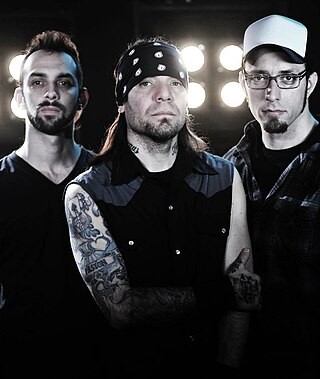
The music of Argentina includes a variety of traditional, classical, and popular genres. According to the Harvard Dictionary of Music, Argentina also "has one of the richest art music traditions and perhaps the most active contemporary musical life.

The music of Colombia is an expression of Colombian culture, music genres, both traditional and modern, according with the features of each geographic region, although it is not uncommon to find different musical styles in the same region. The diversity in musical expressions found in Colombia can be seen as the result of a mixture of Amerindian, African, and European influences, as well as more modern American.

Andean music is a group of styles of music from the Andes region in South America.
Cumbia refers to a number of musical rhythms and folk dance traditions of Latin America, generally involving musical and cultural elements from American Indigenous peoples, Europeans and African slaves during colonial times. Cumbia is said to have come from funeral traditions in the Afro-Colombian community.

Carlos Alberto Tevez is an Argentine professional football manager and former player. A quick, tenacious, powerful, hard-working and dynamic forward in his prime, Tevez was capable of playing as a striker, as a winger, as a supporting forward, or as an attacking midfielder. He was recently the head coach of Primera División club Independiente.
Cumbia villera is a subgenre of cumbia music originating in Argentina in the late 1990s and popularized all over Latin America and Latin communities abroad.
Argentine cumbia is an umbrella term that comprises several distinct trends within the same tradition: the dance and music style known as cumbia in Argentina.

Mexican cumbia is a type of cumbia, a music which originated in Colombia but was later reinvented and adapted in Mexico.

Carajo was an Argentinian rock band from Buenos Aires. It was formed in 2000 with Marcelo "Corvata" Corvalan on bass and vocals, Andres "Andy" Vilanova on drums and Hernan "Tery" Langer on guitar and backing vocals. The first two share the history of having been part of the band A.N.I.M.A.L. In 2020, the band's breakup was announced.
The band Grupo Néctar was a cumbia peruana/cumbia andina style band that formed in Buenos Aires in 1994. The band had achieved popularity in Peru and amongst Peruvian diaspora communities worldwide. They died in a traffic accident in May 2007.
Tha Mexakinz are a Latin rap duo from Long Beach, California, who released three albums in the 1990s on Wild West Records. The first LP, "Zig Zag", was distributed by Wild West/Mad Sounds/Motown. Wild West was also affiliated with American Recordings.
Re Fantasma is an Argentine cumbia band formed in 2001, formed by Martín Roisi and Pablo Antico, known by their respective stage names; Fantasma and Mr. Negro.
Peruvian cumbia is a subgenre of chicha that became popular in the coastal cities of Peru, mainly in Lima in the 1960s through the fusion of local versions of the original Colombian genre, traditional highland huayno, and rock music, particularly surf rock and psychedelic rock. The term chicha is more frequently used for the pre-1990s variations of the subgenre.
Ráfaga is a band in the Argentine cumbia. Formed in 1994, they started playing in Argentine cumbia clubs and quickly gained popularity.
The New Chilean Cumbia also known as New Chilean Cumbia Rock is a subgenre of cumbia music that originated in Chile in the early 2000s and that largely surfaced in mainstream media in 2009 and 2010. In contrast to older cumbias the lyrics of New Chilean Cumbia deals more with urban life and combines aspects of rock, hip hop and a wide variety of Latin American genres like Andean music, salsa, the son, reggae, boleros, ska, Latin-African music, diablada and even folklore from the Balkans, like the Klezmer, and Gipsy music.

Adrián Ricardo Centurión is an Argentine professional footballer who plays as a left-winger for Primera División club Vélez Sarsfield.

Pablo Sebastián Lescano is an Argentine singer, composer, keyboardist, and leader of Cumbia villera group Damas Gratis from 2000. He is considered by many as the founder of the Cumbia villera sub-genre.

Cumbia is a folkloric genre and dance from Colombia.
Cumbia santafesina is a musical style that arose in Santa Fe, Argentina. It is distinguished by taking the guitar and the accordion as the main instruments. Another distinctive feature of cumbia santafesina compared to other subgenres of the rest of Argentine cumbia is that its lyrics have mainly romantic themes.

Elian Ángel Valenzuela, known professionally as L-Gante, is an Argentine rapper and cumbia singer and songwriter.









